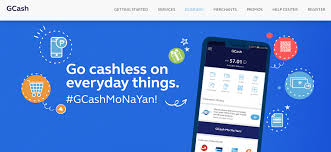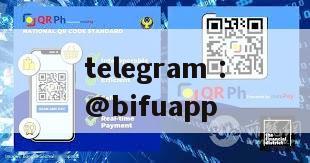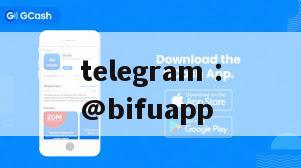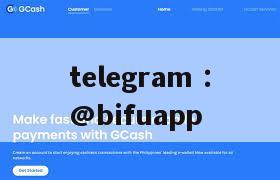In this episode of the Payments Powerhouses series, we speak to Fredy Aga, CFO of Uxin Bank, who shares his experience working at Singapore’s first digital bank, the importance of focusing on customer experience, and how digital and traditional banks complement each other and develop together.
Fredy Aga has been in the financial services industry for more than 25 years, mostly at Standard Chartered Bank, and has been the CFO of Uxin Bank since 2020. Uxin Bank is Singapore’s first digital bank, founded in partnership with FairPrice Group.
Fredy, welcome to Payments Powerhouses. You have been in the industry for many years, and I am sure you have witnessed a lot of changes in the industry over the years. Can you share with us your career journey since you started?
Fredy: If there is any industry that has undergone tremendous changes in the past two decades, financial services, especially banking, are undoubtedly the first to bear the brunt. Having worked in the banking industry for 25 years, I have been fortunate to witness the changes that have taken place in these 25 years. I have experienced multiple economic cycles, the global financial crisis, the new anti-financial crime regulations triggered by the 9/11 terrorist attacks, and of course, the COVID-19 pandemic in recent years. It is amazing that the banking industry has shown its tenacious vitality under a series of severe challenges. I believe that although the operating model of banking business will evolve with the times, the significance of the industry's existence will remain unchanged. In this environment, the rise of digital banks has become an inevitable trend.
Before joining Uxin Bank, I worked in corporate acquisitions and due diligence, focusing on raising capital and setting up companies. I have worked in various functional departments of the bank, but most of my time has been focused on retail banking. This is one of the reasons why I chose to join Uxin Bank, which also focuses on the retail business end.
Throughout my career, I have always enjoyed dealing with all kinds of people. Previously at Standard Chartered Bank, I had the opportunity to work with a diverse team, and now I come to Uxin Bank. We have an excellent team and have formed a unique culture.
Having spent most of your career at Standard Chartered, do you feel more like you are still working for the same company or are you having a completely different experience as your role changes?
Definitely the latter! I am not someone who likes to stay in the same position for a long time, but the benefit of working for a multinational company like Standard Chartered is that you get a lot of opportunities and can learn a lot of different things in different positions within the company. I have worked in multiple functions and have been responsible for country, regional and even global business, and each position has its own unique features. The country-level positions are more operational and require rapid response to various emergencies; while the global roles are more focused on strategic planning.
Uxin Bank is Singapore's first digital bank. Please briefly introduce Uxin Bank.
In short, Uxin Bank is the product of the strong combination of two well-known companies, Standard Chartered Bank and FairPrice Group, and carries the deep heritage of both companies. The two companies have their own strengths and complement each other; Uxin Bank cleverly combines Standard Chartered Bank's strong banking capabilities with FairPrice Group's strong ecosystem. Both organizations have deep experience and a shared vision to serve the community banking needs of Singapore.
We see great value in being closely integrated with FairPrice Group’s large and vibrant consumer ecosystem, which reaches over a million customer experiences a day across the country, enabling us to deliver tangible benefits to Singaporeans.
Cost efficiency is a key win in digital banking – the cost of acquiring a customer is much lower than in traditional banking models. With the support of our strong ecosystem, we are able to effectively reduce the cost of attracting customers. For example, we were very encouraged by the enthusiastic response to our launch on 1 September 2022; within ten days, we attracted 100,000 users, and just two months later, our user base had rapidly expanded to over 300,000.
Our mission is to make banking accessible while ensuring that services are transparent, simple, convenient and rewarding. With Singpass, users can easily open a Uxin Bank account in minutes and enjoy preferential policies such as zero annual fees, no card replacement fees and free foreign exchange transactions. All of this is due to Standard Chartered Bank's deep banking experience and FairPrice's robust market ecosystem. Uxin Bank has opened up a transparent, convenient and rewarding banking service path for Singaporean customers.
Why do consumers prefer digital banks over traditional banks? How do digital banks directly address user pain points?
Modern digital banks such as Uxin Bank set up their infrastructure in the cloud at the beginning of construction, relying on the most advanced technology to create a cutting-edge financial service platform.
This model brings two core benefits to customers: First, because there is no need to maintain a physical network, operating costs are reduced, and digital banks can directly feedback such cost benefits to customers. Uxin Bank provides a fee-free service, giving customers market-leading deposit rates, and no minimum deposit limit. Second, digital banks are committed to raising market standards through customer-centric experiences. For example, a customer asked for the ability to adjust their credit limit by themselves, and Uxin Bank launched this feature within two weeks. The ability to change quickly and make an impact is the advantage of digital banks over traditional banks.

Although Uxin Bank does not have physical branches, we are committed to making banking accessible to the general public, with a particular focus on reaching those who are not digitally familiar. We have a dedicated customer service team that supports customers through the app and handles customer queries and requests about Uxin Bank 24/7. We answer customer calls promptly and enable live chat within the mobile app to ensure prompt response to customer needs. In addition, we recently opened a customer experience center at FairPrice in Vivocity, where our friendly digital ambassadors provide guidance and support for customers who are not digitally familiar, creating a seamless digital experience. Customers can even visit the site to experience a drink prepared by a robot barista!
Based on the strength of the FairPrice ecosystem, what are Uxin Bank's future plans? Will it expand its rewards program?
This is exactly what we are actively preparing for! In addition to deepening its integration with the FairPrice Group ecosystem, we are working with many well-known brands such as Starbucks, KFC, Caltex, Viu, etc. to provide customers with a variety of coupons, with more than 120,000 digital coupons successfully redeemed in the first month of launch.
Uxin Bank is a digital bank for consumers with a focus on the Singapore market. But this is just the beginning. Our goal is to become a bank that is close to the lives of the public and help every user save a lot of money in their daily expenses. We firmly believe that Uxin Bank's unique value proposition will truly benefit customers, and FairPrice Group, as a household name in Singapore, will lay a solid foundation for the long-term development of Uxin Bank and draw a beautiful chapter together.
As Singapore's first digital bank, does Uxin Bank feel the pressure to continue to promote digital banking innovation?
I think this issue should be viewed from two aspects. On the one hand, we are very proud to be the first digital bank; on the other hand, we also realize that competition will continue to intensify. Although it is a cliché, Uxin Bank's corporate culture is to always put customers at the center of everything we do. Whether we are the first or second digital bank in Singapore, this concept is the source of power that drives us forward. We are confident that we can provide innovative solutions and create a better life for our customers.
Combining the deep accumulation of traditional banking with today's practical experience in digital banking, what is your outlook on the future of the banking industry? Will traditional banking business be completely eliminated one day?
Digital banks will undoubtedly bring innovative and convenient solutions to customers in Singapore and around the world, and we believe that this force will lead the entire industry standard to a new level. In a diversified market environment, digital banks will complement traditional banks and work together to promote the iteration and upgrading of the industry. The vast consumer group will be the ultimate beneficiaries of this series of innovations.
It is exciting that the public's acceptance of digital services is increasing day by day, and this wave crosses industry boundaries. The COVID-19 pandemic has accelerated this process. For Uxin Bank, this is not only a golden opportunity to expand its user base, but also a great opportunity to reach those customers who were once cautious about digital services but are now gradually opening their hearts.
The future market competition is fierce and the outcome is uncertain, but as an emerging field that has only been around for less than a decade, digital banks are on the fast track of continuous learning and growth. We firmly believe that the future industry leaders will be those companies that have the courage to explore new business models and cultivate sustainable development paths.
Given that only a few digital banks have achieved profitability, what are the key drivers for banks to achieve profitability?
Indeed, there are only a handful of digital banks that have achieved profitability, perhaps no more than 10%. In my opinion, there are many factors behind the rise and fall of digital banks, but success is inseparable from the following three key elements:
First, digital banks need to build a sustainable business model that can withstand economic cycle fluctuations and market troughs, which means that digital banks should have a rich and diverse, well-balanced product line and customer base. Although a single product strategy is the choice of most digital banks in the early stages of their start-up, it is difficult to pave the way for profitability. The key to success is to fully develop a comprehensive product matrix such as savings and credit, while radiating a wide range of customer groups.
Second, it is also very important to keep the cost of acquiring customers low. With a strong ecosystem, banks can build a unique value proposition that attracts customers, thereby avoiding relying solely on high-cost offers to attract customers.
Furthermore, focusing on user activity is the only way to success. It is crucial to pay close attention to the data of monthly and daily active users, because high-frequency interaction with customers is the cornerstone of value creation.
Although digital banks are still in their infancy, the vast opportunities in between are nurturing unlimited possibilities, which is very exciting.
For friends who want to join the field of digital banking, do you have any good suggestions?
My 19-year-old son often asks me what I think of his future. I often tell him that today's banking industry is no longer the dull image of the past. With the development of technology, it has become a dynamic field of work.
My first piece of advice is to strive to integrate into the digital age. This does not mean that you need to be a programming expert, but mastering programming is a natural plus. The key is to maintain curiosity and desire to learn about areas such as data analysis, blockchain, cloud computing and big data, and ensure that you can keep up with the pace of these cutting-edge technologies.
My second piece of advice is to stay true to your original intention and always put customers first. In any job, it is crucial to put the interests of customers first.
I have noticed that corporate culture has a profound impact on young people's career choices. Many institutions are reshaping their corporate culture to attract more independent-minded young people, who tend to consider more factors when choosing a job. Finding a company that matches your values is crucial to your career.
My last piece of advice is to cultivate leadership. At Uxin Bank, I have seen employees of different ages take the initiative to take responsibility and show leadership, which is exactly the culture we encourage. In career development, it is more important to have a mindset of continuous learning and self-improvement rather than just pursuing a job title.
You mentioned on LinkedIn that you learn a new skill every year. What did you learn last year? What do you plan to learn this year?
To be honest, I have been learning more about the latest developments in digital banking and the industry as a whole over the past year. Starting a bank is not an easy task. It has been a challenging and fulfilling journey. This year, I set myself an even more challenging goal - to participate in hiking and even plan to challenge the hiking expedition to the base camp of Mount Everest.
"Payments Powerhouses" is a monthly feature series focusing on interviewing leaders in the payment and fintech fields in Southeast Asia and around the world.

 bifu pay
bifu pay





发表评论
发表评论: